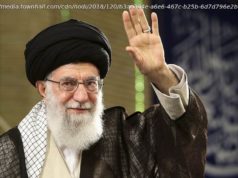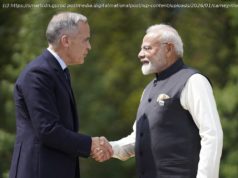The merger would combine the phone giant with the owner of CNN, HBO, the « Harry Potter » franchise and pro basketball.
WASHINGTON — The U. S. government pleaded its case Monday for blocking AT&T from absorbing Time Warner, saying it would hurt consumers as a big antitrust trial crept toward its end and a decision by a federal judge.
The $85 billion proposed merger is a “big deal,” Craig Conrath, the lead Justice Department attorney, said on the last day of the trial in federal court. “It would have a massive effect on the structure of the pay TV industry.”
The Trump Justice Department sued in November to block the deal, saying it would force consumers to pay hundreds of millions of dollars more to watch their favorite shows, whether on a TV screen, smartphone or tablet. Conrath told U. S. District Judge Richard Leon that if he doesn’t block the merger outright, he should consider ordering other remedies such as “partial divestitures.” That could mean, for example, that AT&T wouldn’t be able to acquire key parts of Time Warner like Turner Broadcasting that include CNN, Conrath suggested.
AT&T has previously rejected any option that would cause it to lose control of CNN.
Conrath said evidence presented by the government during the six-week trial showed that by hurting competition in that industry, the deal “would impose substantial harm on consumers” and raise prices.
The merger would combine the phone giant with the owner of CNN, HBO, the “Harry Potter” franchise and pro basketball. It would be one of the biggest media mergers ever. The outcome of the case could shape how consumers get — and how much they pay for — streaming TV and movies.
It wasn’t clear whether Conrath’s suggestion of alternatives to blocking the merger indicated the government may be anticipating that it could lose the antitrust suit.
Separately, there was a sign that AT&T may be under increased pressure to achieve the deal: The announcement Sunday of a merger agreement linking T-Mobile and Sprint, the third- and fourth-largest U. S. wireless companies, giving them bulk to more tightly compete against industry leaders AT&T and Verizon.
AT&T and Time Warner have insisted throughout the trial that their deal wouldn’t hurt competition in the booming pay TV business. An economist who was one of the companies’ lead witnesses said that in fact, consumers could end up paying less after a merger.
The companies’ lead attorney in defending the deal, Daniel Petrocelli, has said the rapid transformation of the media and entertainment landscape is what makes the merger “imperative.”
AT&T, a wireless, broadband and satellite behemoth, became the country’s biggest TV provider with its purchase of DirecTV. The largest pay TV company, it accounts for a substantial portion of AT&T’s earnings. DirecTV claims about 25 million of the 90 million or so households in the U. S. that are pay TV customers.
To lure wireless customers, AT&T offers discounts on DirecTV and could soon do so with HBO.
It was the first time in decades the government had sued to stop a merger of two companies that don’t directly compete. The landmark trial could imprint future antitrust policy. After the weeks of argument and testimony from experts as well as customers and competitors of the two companies, it now falls to Leon to decide.
The government argues that AT&T would gain outsize market power, jacking up prices it charges cable providers to carry networks in the Time Warner stable. Rival providers to AT&T like Charter Communications or Cox, which now are customers of Time Warner for its content, would also become its competitors. Its star witness was Carl Shapiro, an economist at the University of California, who used an economic model to predict that some $500 million more annually could show up on consumers’ cable bills by 2021.
In his closing argument, Conrath tried to turn AT&T CEO Randall Stephenson’s words in August 2016 against the company’s position. Conrath cited a statement Stephenson made at the time to Time Warner CEO Jeffrey Bewkes, referring to Time Warner’s purchase of a 10 percent stake in the Hulu network. “It’s hard to imagine how it won’t impact all of our relationships,” he quoted Stephenson as saying.
The rival economist put on by the companies, Dennis Carlton from the University of Chicago, refuted Shapiro’s model as overly complicated and rejected his conclusions.
If Leon decides to block the deal, a chill over media deal-making is likely. Big internet players like Amazon or Google could decide to keep building up their own content offerings rather than growing them by acquisitions. If the companies prevailed, on the other hand, that could spur a wave of similar deals as other distributors — like major cable, satellite and phone companies — bulk up with entertainment purchases to compete against internet-born rivals.
Home
United States
USA — Financial AT&T-Time Warner deal will hurt consumers: Justice Department says






